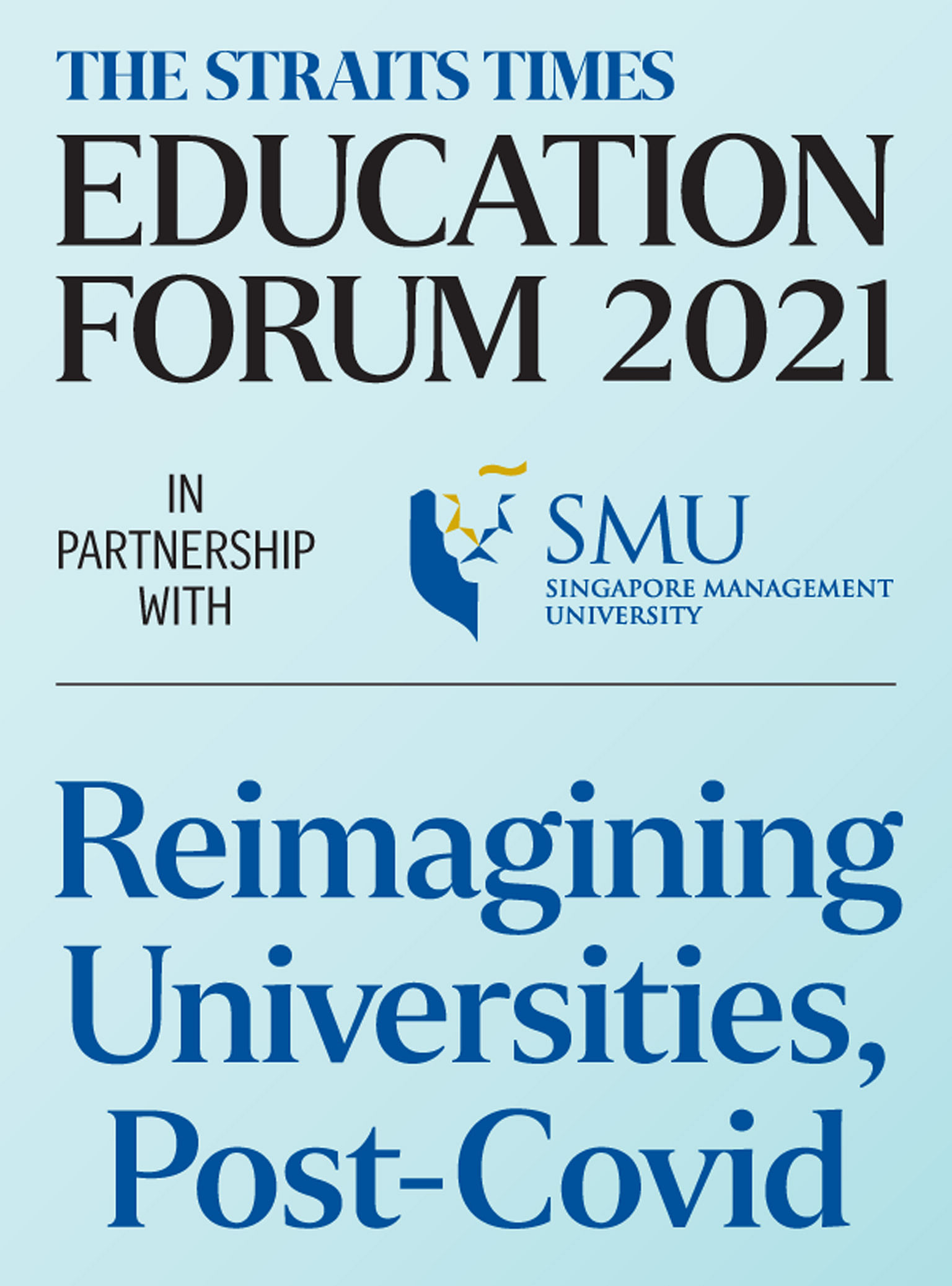ST Education Forum: Tech should enable higher education outcomes, says SMU president
Sign up now: Get tips on how to help your child succeed

Given the work- and study-from-home situation due to the pandemic, certain learning experiences cannot be carried out in the ways preferred.
ST PHOTO: CHONG JUN LIANG
SINGAPORE - Technology should be an enabler for learning, rather than pushed for its own sake, said the president of Singapore Management University (SMU) Lily Kong.
Instead of focusing on how the Covid-19 pandemic is going to disrupt education through the increasing importance of technology, Professor Kong said that the focus should be on learning outcomes.
"The much more important question is what are the outcomes of higher education that we hope to see and what the best way of delivering those outcomes. And for me, technology is a part of it," she said.
Prof Kong was speaking at The Straits Times Education Forum 2021 on Reimagining Universities, Post-Covid on Friday (Feb 5).
Given the work- and study-from-home situation due to the pandemic, certain learning experiences cannot be carried out in the ways preferred. "Then we use technology to make the best of the situation, and we deliver the best experiences that we can until such time that we can pivot offline," she said.
ST senior education correspondent Sandra Davie added that despite these restrictions, the current generation of students may be best placed to benefit from the current situation.
"Look at the limitations, as well as the advantages to be accrued from doing things online. SMU for example, was forced to do admissions interviews and submissions online. But in the process of doing that, they realised that we are dealing with Generation Z who are very comfortable online," she said.
"They were actually better at interacting through the Internet than the people running the interviews, so it also it made the admissions officers think - should we do more of this online?" she added.

Increased use of technology in universities, has however created questions about the fundamental worth of university education, especially in Western countries, said Education Minister Lawrence Wong.
"Even before Covid-19, there have been predictions that the university sector would be completely disrupted by technology. You see this particularly in countries like America and the UK because tuition fees have been rising, costs have escalated, universities become more bloated, the student debts rise," he said.
Questions have been raised about the value of university education - exacerbated by the pandemic because students are unable to attend classes face-to-face.
This has prompted more questions about whether universities need to do more to reform themselves, Mr Wong added.
"In fact, there are now predictions in some of these countries that there would be so much disruption that some universities may have to close, and we may well see the demise of more universities because they are unable to cope with the pressures," he said.
Prof Kong also brought up several predictions on technology's effect on education that have failed to come true, despite the pandemic.
"In 2008, a group of Harvard professors wrote a book called Disrupting Class. And they predicted that by 2019, about half of all, middle and high school courses would be delivered online by 2019... And we all know that that hasn't happened," she said.
The book she was referring to was Disrupting Class: How Disruptive Innovation Will Change The Way The World Learns, by Michael B. Horn and Curtis W. Johnson.
"Some people believe that it will still happen, aided by Covid-19, but the jury is out," she added.


